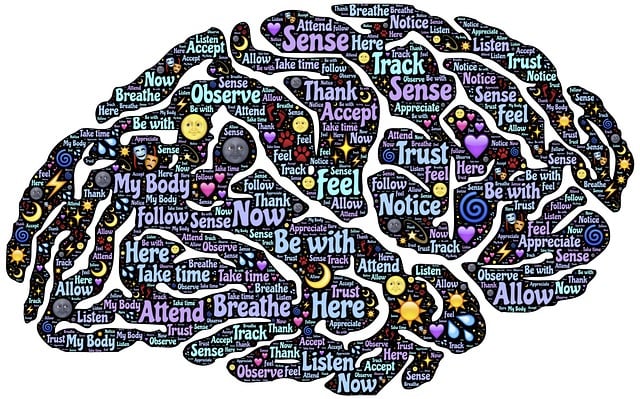Stress is a prevalent challenge in modern work life, impacting physical and mental health. It's crucial to address workplace issues and job stress through therapy for adults, as these pressures significantly affect overall well-being. Effective strategies include mindfulness meditation, exercise, time management, compassion cultivation, and cognitive-behavioral therapy (CBT). These techniques enhance resilience, reduce anxiety, and improve job satisfaction by fostering a healthier work-life balance. Mindfulness practices prove especially beneficial in managing job stress, promoting calmness, and improving coping mechanisms, making it an essential tool for therapeutic risk assessments.
Stress management is a vital skill for adults navigating the complexities of modern work environments. This comprehensive guide delves into understanding the profound impact of stress on workplace performance, with a focus on common triggers like heavy workloads and poor work-life balance. We explore effective techniques, from mindfulness practices to structured therapy, that empower professionals to mitigate job-related stress. Learn how integrating these strategies into daily routines can enhance well-being and productivity in the workplace. Discover the transformative power of stress management for adults facing workplace issues and job stress.
- Understanding Stress and Its Impact on Adults in the Workplace
- Common Causes of Job-Related Stress and Workplace Issues
- Effective Stress Management Techniques for Adult Professionals
- Integrating Stress Therapy into Daily Routines
- The Role of Mindfulness and Relaxation Practices in Job Stress Reduction
Understanding Stress and Its Impact on Adults in the Workplace

Stress is an inevitable part of modern life, but its impact on adults in the workplace can be profound and detrimental to both physical and mental health. The constant pressure to meet deadlines, manage heavy workloads, and navigate complex interpersonal dynamics at work can lead to heightened stress levels, affecting overall well-being. This is particularly relevant for adults grappling with therapy for adults workplace issues and job stress, as these challenges can significantly impact their professional and personal lives.
Understanding the effects of stress on mental health awareness is crucial. Prolonged exposure to high-stress environments can result in anxiety, depression, and even burnout. Emotional healing processes are essential tools for adults facing these workplace stressors. Techniques such as mindfulness meditation, regular exercise, and effective time management strategies have been proven to enhance mental wellness, enabling individuals to better manage stress and improve their overall job satisfaction.
Common Causes of Job-Related Stress and Workplace Issues

Job-related stress is a prevalent issue affecting many adults in the workplace. Common causes include heavy workloads, tight deadlines, and high performance expectations. The pressure to meet these demands can lead to increased anxiety, leading to physical and mental health issues over time. Additionally, interpersonal conflicts at work, lack of social support from colleagues or supervisors, and a toxic work environment are significant contributors to job-related stress. These factors can create a hostile atmosphere, impacting employee morale and productivity.
Addressing workplace issues and job stress is essential for maintaining a healthy and productive workforce. Many adults seek therapy to manage these concerns effectively. Trauma support services play a vital role in helping individuals cope with past traumas that might be triggering current stress responses. Moreover, healthcare provider cultural competency training can enhance care for diverse employees, ensuring their unique needs are met. Public awareness campaigns development can also educate organizations and individuals about the signs and effects of job-related stress, fostering an environment that prioritizes mental well-being.
Effective Stress Management Techniques for Adult Professionals

Adult professionals often face a unique set of challenges that can lead to significant stress and workplace issues. To combat this, incorporating effective stress management techniques is essential for maintaining mental health and overall well-being. One powerful approach gaining traction in therapy for adults is compassion cultivation practices. These methods encourage individuals to cultivate self-compassion, which can help them respond to stressful situations with more resilience. By acknowledging their struggles and offering themselves kindness, adults can reduce the adverse effects of stress on both physical and mental health.
In addition to compassion cultivation practices, developing inner strength through various techniques is another effective strategy for managing job stress. Engaging in regular exercise, mindfulness meditation, and deep breathing exercises can significantly enhance an individual’s ability to handle stressful situations. These stress reduction methods empower adults to take control of their emotional responses and foster a sense of calm amidst chaos. Incorporating such practices into daily routines allows professionals to navigate workplace challenges with greater ease and maintain a healthy work-life balance.
Integrating Stress Therapy into Daily Routines

Integrating stress therapy into daily routines is a powerful step towards managing and overcoming workplace issues and job stress. Many adults struggling with burnout often find solace in cognitive-behavioural therapy (CBT), which teaches them to challenge negative thought patterns and replace them with more positive, realistic ones. This simple yet effective approach helps individuals develop coping mechanisms tailored to their specific stressors, enabling them to better navigate the demands of their jobs and personal lives.
Regular practice is key to making stress therapy a sustainable part of one’s routine. By dedicating even just 15-30 minutes daily to mindfulness exercises or journaling, for instance, individuals can significantly enhance their ability to manage stress. These activities promote self-awareness and emotional regulation, which are vital components in the pursuit of mental well-being. Moreover, seeking trauma support services and incorporating burnout prevention strategies for healthcare providers into one’s routine can create a robust framework for managing workplace issues effectively, fostering a healthier and more fulfilling professional life centered around the Mind Over Matter principles.
The Role of Mindfulness and Relaxation Practices in Job Stress Reduction

Mindfulness and relaxation practices have emerged as powerful tools in managing job stress among adults facing workplace issues. These techniques, such as meditation and deep breathing exercises, encourage individuals to focus on the present moment, thereby reducing anxiety and fostering a sense of calm. By integrating mindfulness into daily routines, workers can enhance their ability to cope with demanding situations, leading to improved job satisfaction and overall mental well-being.
In the context of therapy for adults dealing with workplace challenges, mindfulness serves as a game-changer in stress reduction strategies. It empowers individuals to detach from stressful thoughts and create a mental space that promotes relaxation. Moreover, regular practice can contribute to self-esteem improvement and coping skills development, making it an essential component in the risk assessment for mental health professionals addressing job-related stresses.
Stress management is an invaluable skill for adults navigating the complexities of modern work life. By understanding the root causes of job-related stress, such as heavy workloads and lack of control, professionals can employ effective techniques like mindfulness meditation and relaxation exercises to mitigate its impact. Integrating these practices into daily routines not only enhances overall well-being but also improves productivity and job satisfaction. For those dealing with workplace issues, therapy specifically tailored to adult professionals can provide a transformative game-changer in managing and overcoming stress related to their careers, ultimately fostering a healthier work environment.














